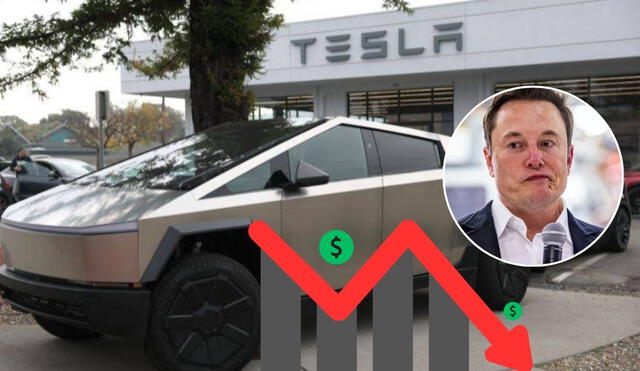Tesla stock prices drop amid Trump tariffs and economic fears impacting Wall Street
Shares of the electric-car maker Tesla (TSLA -8.28%) continued its struggles to open the week of trading, falling roughly 8.3% after a Wall Street analyst lowered his price target on the stock and maintained a sell rating.

Tesla stock (TSLA) fell more than 10% on Monday as another bearish call from Wall Street sent shares to their lowest level since the day before the presidential election and 50% from its record closing high of $479 seen on Dec. 17. As reported by CNBC, the company's shares have declined for seven consecutive weeks, marking the longest losing streak since the company went public 15 years ago.
Despite that, Tesla continues to command a valuation far above that of the world's largest auto and technology companies, judged by standard financial metrics. That's because most investors and analysts have bought Musk's argument that the world's most valuable automaker is not actually a car company, but rather an AI pioneer that will soon unleash a revolution in robotaxis and humanoid robots.
Tesla stock prices drop
UBS analyst Joseph Spak reduced his price target for Tesla by $34, bringing it to $225, while Tesla shares were trading around $240 at the time of writing. Spak lowered his first-quarter delivery forecast for the company from 437,000 to 367,000, citing reduced demand for Tesla's Model 3 and Model Y in certain markets. This revised delivery estimate reflects a 26% drop in deliveries compared to the previous quarter and a 5% decline year-over-year.
The adjusted delivery forecast also suggests that Tesla's gross margin in its auto business will decrease by 330 basis points, falling to 10.3%, excluding credits. This would be a drop from 16.4% in the first quarter of 2024. Following a massive surge for the stock following President Donald Trump's election win in early November, Tesla has now retraced and given up all those gains. The stock might have run far too quickly, with investors buying hope over clear catalysts.
Why is Tesla stock getting crushed today? Musk faces backlash and competition
According to analysts, the situation that Tesla is going through can be explained in part by the tough competition it has faced in Europe in recent years. Manufacturers in China and other countries offer cheaper electric vehicles with similar features. Russ Mold, chief investment officer at AJ Bell, believes that competition is the main factor in Tesla's sales decline in January. However, some buyers may be deciding against purchasing Tesla cars because of Elon Musk's increasingly political profile.
The stock's decline could also be the aftermath of recent protests against Musk's political activity, including his mass layoffs of US government workers as a senior adviser to Trump. Investors worry that politics is distracting the world's richest man from tending to his golden goose. Still, Tesla's market capitalization continues to rise by about $65 billion since the election, an amount greater than the total value of General Motors.
As a result of Musk's controversies, and after the controversial gesture that the billionaire made with his arm raised after Trump's inauguration on January 20 - which many interpreted as a fascist salute - images of cars and Tesla dealerships vandalized with graffiti and messages against the richest man in the world have been circulating on social networks.
Trump tariffs and economic fears impact Wall Street
The primary indicator of the U.S. stock market is headed for its seventh swing of over 1%, either up or down, in the past eight days, following a turbulent period dominated by President Trump's fluctuating tariffs. Concerns persist that the tariffs could harm the economy directly or create enough uncertainty to cause U.S. companies and consumers to freeze up. The S&P 500 is currently 7.8% below its all-time high set on February 19.
At Goldman Sachs, David Mericle revised his U.S. economic growth forecast for 2025, lowering it from 2.2% to 1.7%, mainly due to the expectation that tariffs will be more impactful than previously anticipated.












